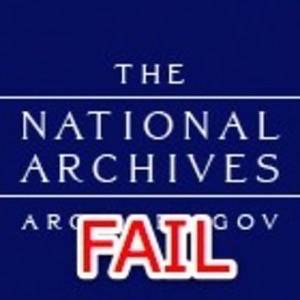Cloud computing might strike fear in the hearts of some, but at least your employees can’t walk off with your hard drives. Since May, the National Archives and Records Administration has offered a $50,000 reward for a missing Clinton-era hard drive.

As of Sunday, it’s been revealed that thousands of electronic devices containing sensitive and historically important data are missing from the nation’s most important public repository. While IT tends to have a knee-jerk reaction in favor of traditional data centers, the situation at the National Archives shows the sense of false security they impart.
The Back Story
In May of this year, the National Archives issued a
that admitted an external hard drive with two terabytes of data had gone missing. Within days of the disappearance, the agency was offering $50,000 dollars for its return.
Months later the money is unclaimed and the hard drive is still missing. Now, a criminal investigation by the inspector general of the Archives has revealed that thousands of electronic storage devices have been lost or stolen. From external hard drives to entire servers, exactly how many devices and how much data has been compromised is unknown.
Conclusion: It’s Hard to Steal A Cloud
What is clear is that if the most important archival system in the country can’t protect its data centers, it’s likely that the enterprise is going to have problems too. The similarities between enterprise data management and the agency run deep. With facilities in 20 states, the National Archives deal with the entire spectrum of nightmare situations when it comes to data security.
What if, instead of a chaotic jumble of devices and data centers, the Archives simply put everything in the cloud? True, it would be vulnerable in many ways. But they’d be different ways than what plagues them now. It’s hard to steal the server holding someone’s social security number when you have no real idea where it is.
At this point, it might be ludicrous for anyone to put their most sensitve data in the cloud as a security measure. But the dire straits at the National Archives should stand as a warning for those who think traditional data security measures are without vulnerability.










